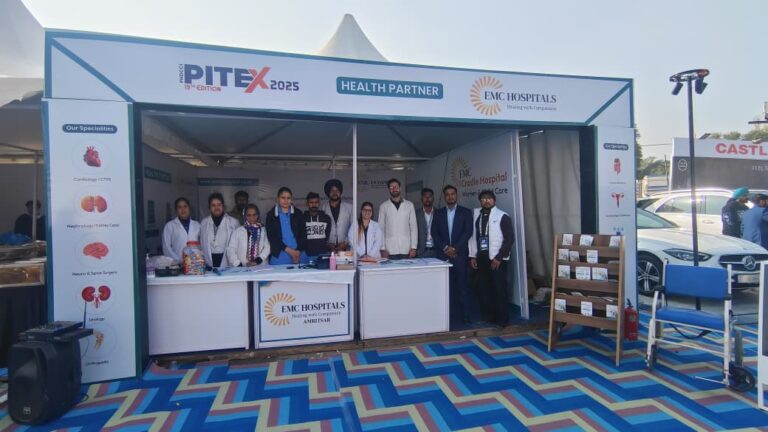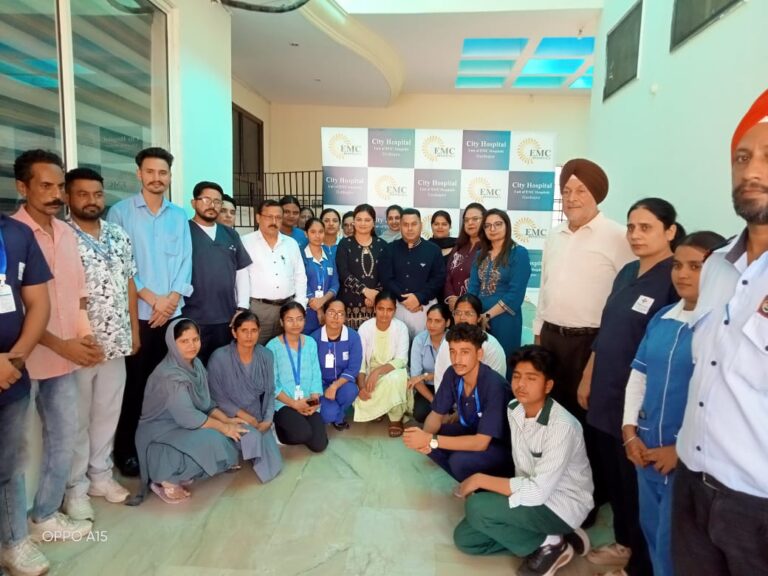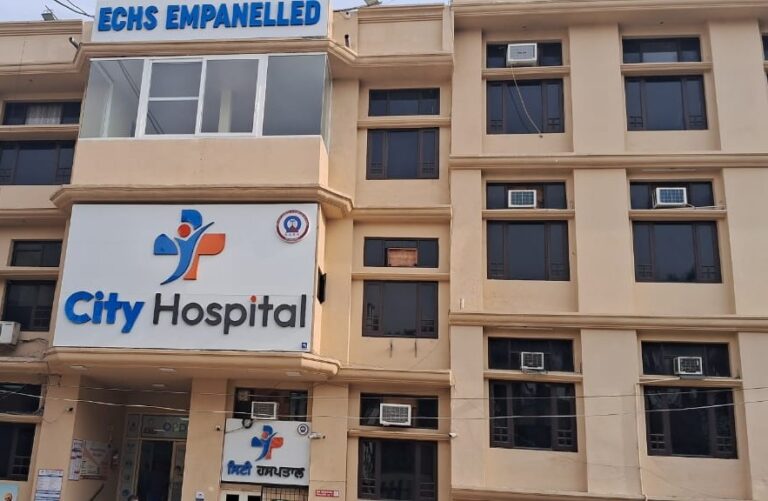Air Pollution and Its Impact on Human Health — Risks, Consequences, and Solutions- Pulse Hospital (A Unit of EMC Hospitals)
Amritsar, October 22, 2025 — Dr. Rishabh Arora, Senior Physician at Pulse Hospital, Amritsar, has raised serious concerns over the rising levels of air pollution and its grave impact on human health. He stated that air pollution has now become a silent health crisis, deeply affecting not only our environment but also our body and mind. Harmful pollutants such as fine particulate matter (PM2.5 and PM10), carbon monoxide, sulfur dioxide, nitrogen dioxide, and ozone slowly enter our bodies, damaging the lungs, heart, brain, and other vital organs. As a result, cases of breathing difficulties, asthma, chronic bronchitis, heart disease, cancer, and stroke are steadily increasing.

Dr. Arora highlighted that, according to the World Health Organization (WHO), nearly seven million people die every year worldwide due to diseases caused by air pollution — a significant portion of these deaths occur in India. The air quality levels in major North Indian cities such as Amritsar, Ludhiana, and Delhi have persistently crossed the danger mark. He added that children, the elderly, and pregnant women are the most vulnerable, as their immune systems are comparatively weaker. In children, lung development is hindered; in the elderly, cardiovascular and respiratory diseases worsen; and in pregnant women, air pollution can negatively affect fetal development.
Dr. Arora further noted that air pollution impacts not only physical health but also mental well-being. Prolonged exposure to polluted air can lead to fatigue, depression, stress, irritability, and reduced concentration — issues that affect working professionals, students, and senior citizens alike. He warned that if immediate and concrete measures are not taken, air pollution could place an enormous strain on India’s healthcare infrastructure in the coming years.
As a solution, Dr. Rishabh Arora urged collective action from all sections of society. He advised people to reduce vehicle emissions by opting for public transport, cycling, or walking instead of using private vehicles. Planting more trees, controlling industrial emissions, avoiding stubble or waste burning, and keeping indoor air clean through air purifiers or natural plants are equally essential steps. “Clean air is not a luxury, but a fundamental right of every citizen,” he emphasized. “Just as we demand clean water, we must also demand clean air.”
Pulse Hospital, Amritsar, has also launched a public health awareness campaign on this issue. The campaign aims to educate city residents about protection against air pollution, environmental preservation, and healthy lifestyle practices. In the coming months, the hospital plans to organize free health check-up camps and “Clean Air Awareness” programs in collaboration with schools, colleges, and social organizations across the city.
In conclusion, Dr. Rishabh Arora said, “If we all take small, consistent steps together, this major problem can be solved. We must ensure clean air for our city, our children, and our future.”





